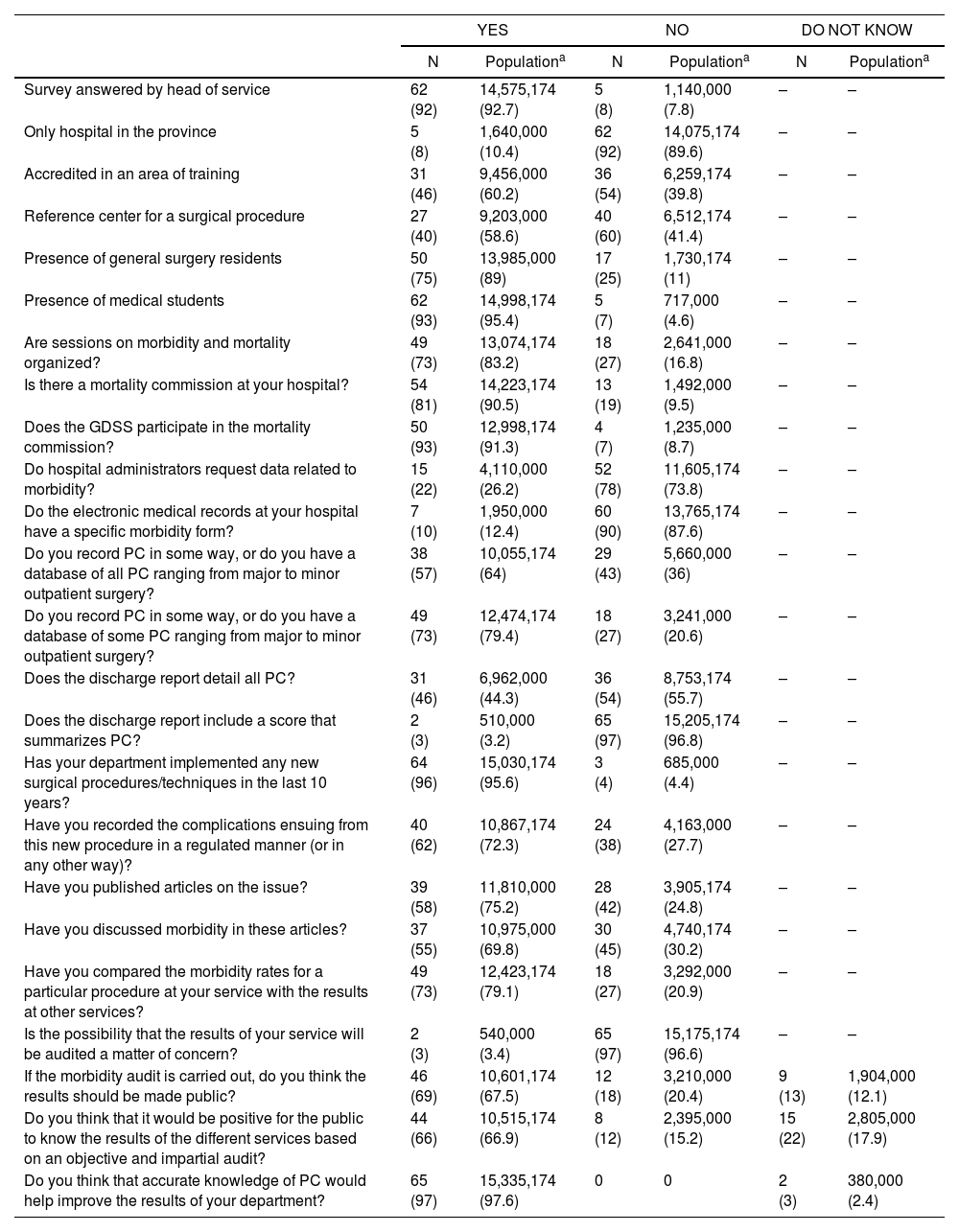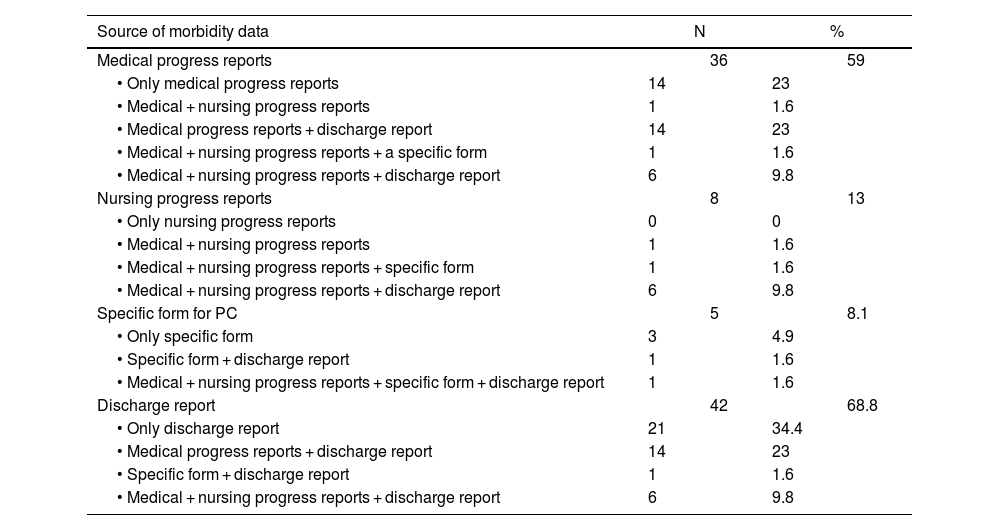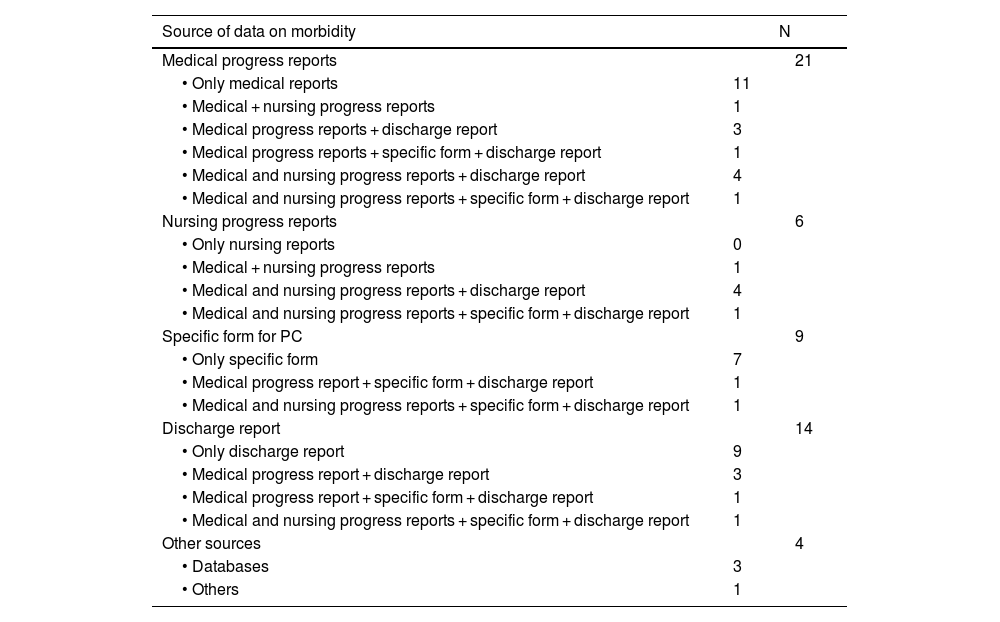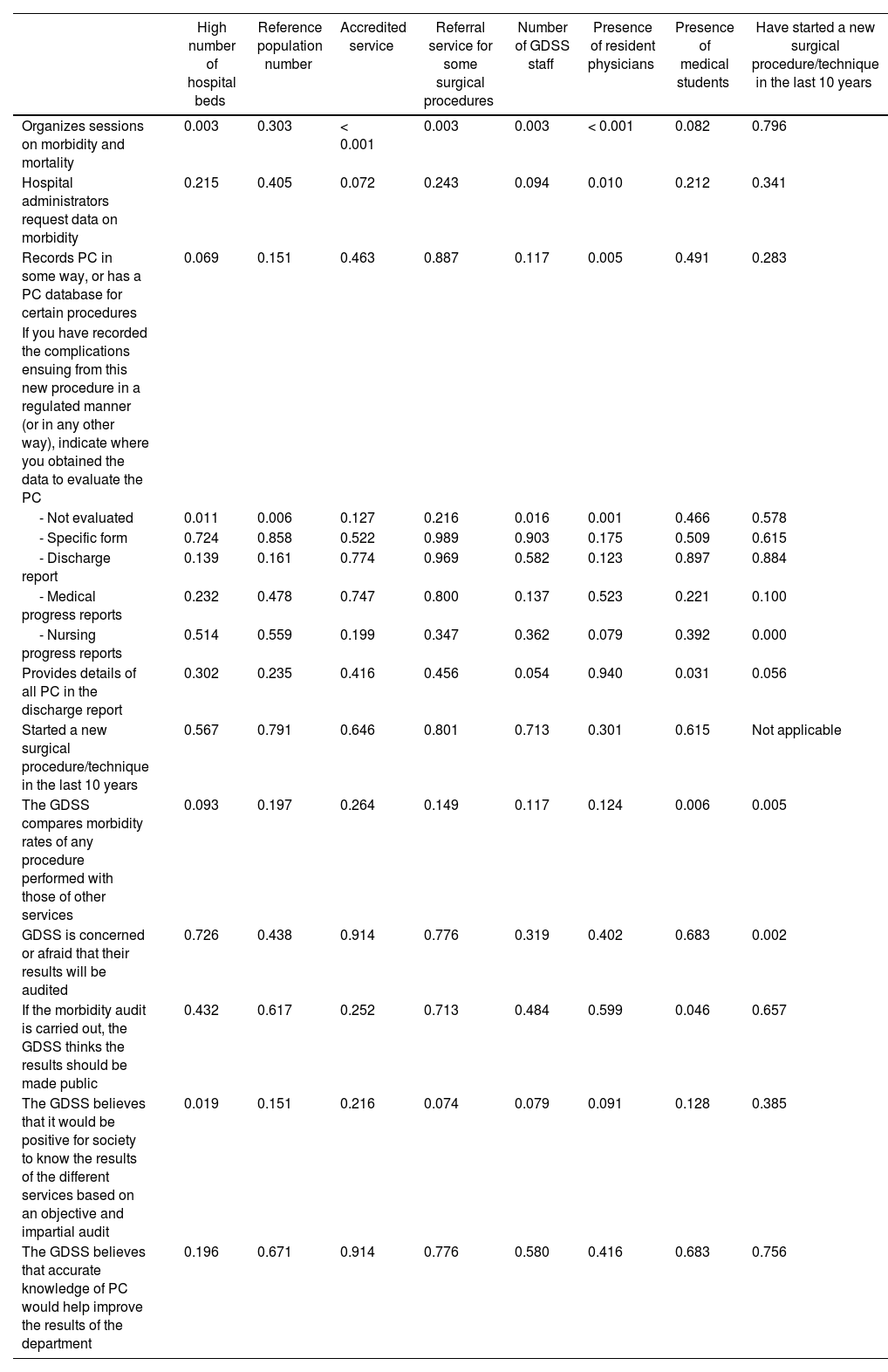The methodology used for recording, evaluating and reporting postoperative complications (PC) is unknown.
The aim of the present study was to determine how PC are recorded, evaluated, and reported in General and Digestive Surgery Services (GDSS) in Spain, and to assess their stance on morbidity audits.
MethodsUsing a cross-sectional study design, an anonymous survey of 50 questions was sent to all the heads of GDSS at hospitals in Spain.
ResultsThe survey was answered by 67 out of 222 services (30.2%). These services have a reference population (RP) of 15 715 174 inhabitants, representing 33% of the Spanish population.
Only 15 services reported being requested to supply data on morbidity by their hospital administrators. Eighteen GDSS, with a RP of 3 241 000 (20.6%) did not record PC. Among these, 7 were accredited for some area of training. Thirty-six GDSS (RP 8 753 174 (55.7%) did not provide details on all PC in patients’ discharge reports. Twenty-four (37%) of the 65 GDSS that had started using a new surgical procedure/technique had not recorded PC in any way. Sixty-five GDSS were not concerned by the prospect of their results being audited, and 65 thought that a more comprehensive knowledge of PC would help them improve their results. Out of the 37 GDSS that reported publishing their results, 27 had consulted only one source of information: medical progress records in 11 cases, and discharge reports in 9.
ConclusionsThis study reflects serious deficiencies in the recording, evaluation and reporting of PC by GDSS in Spain.
Se desconoce la metodología para objetivar las complicaciones postoperatorias (CPs). El objetivo del presente estudio fue determinar cómo se registran, evalúan y notifican los CPs en los Servicios de Cirugía General y Digestiva (GDSS) en España, y analizar su actitud ante una auditoría de morbilidad.
MétodosEstudio transversal en el que se envió una encuesta anónima de 50 preguntas a todos los responsables de los GDSS de los hospitales españoles.
ResultadosRespondieron 67 de 222 servicios (30,2%) con una población de referencia (RP) de habitantes, que representa el 33% de la población española.
Sólo se solicitó a 15 servicios datos sobre morbilidad por parte de las direcciones hospitalarias. Dieciocho GDSS, con una RP de 3.241.000 (20,6%) no registraron CPs. De estos, siete estaban acreditados para alguna área de capacitación. Treinta y seis GDSS (RP 8,753,174 (55,7%) no detallaron todas las CPs en los informes de alta.
Veinticuatro (37%) de los 65 GDSS que habían iniciado un nuevo procedimiento/técnica quirúrgica no habían registrado CPs de ninguna manera. Sesenta y cinco GDSS no estaban preocupados si sus resultados fueran auditados y 65 pensaban que el conocimiento real de las CPs les ayudaría a mejorar sus resultados. De los 37 GDSS que informaron haber publicado sus resultados, 27 habían consultado una fuente de información: en once casos registros de evolución médica y en nueve informes de alta.
ConclusionesEste estudio refleja un grave déficit en el registro, evaluación y comunicación de las CPs por parte de los GDSS en España.
Artículo
Comprando el artículo el PDF del mismo podrá ser descargado
Precio 19,34 €
Comprar ahora














